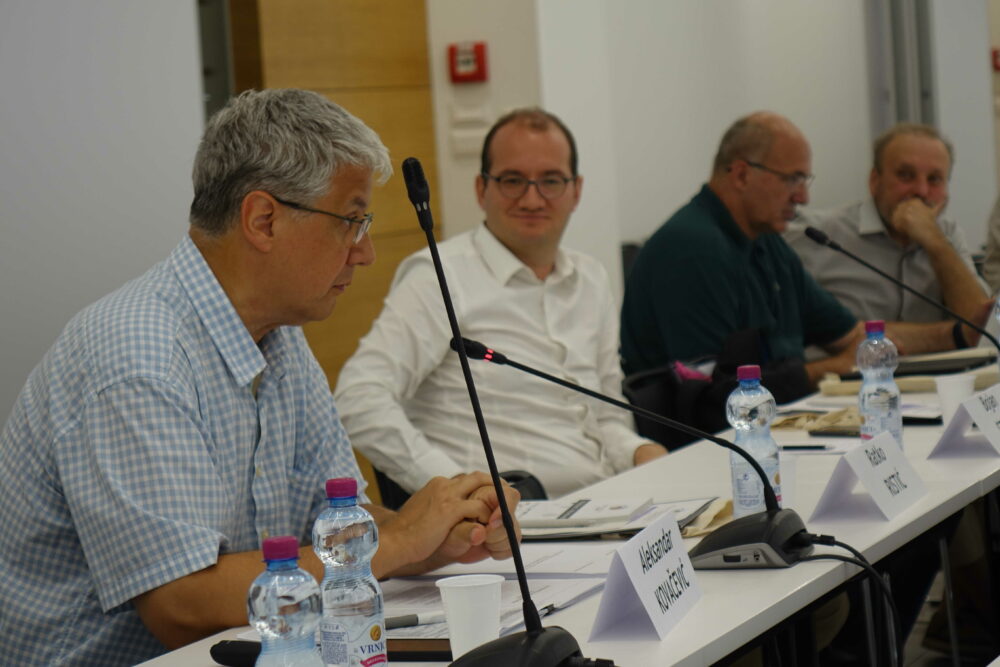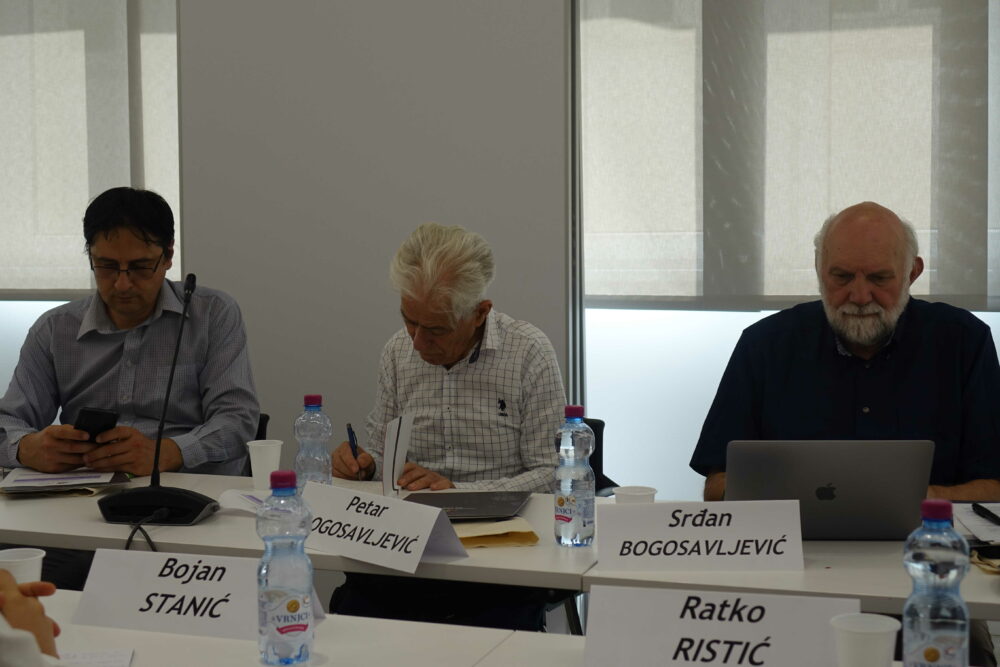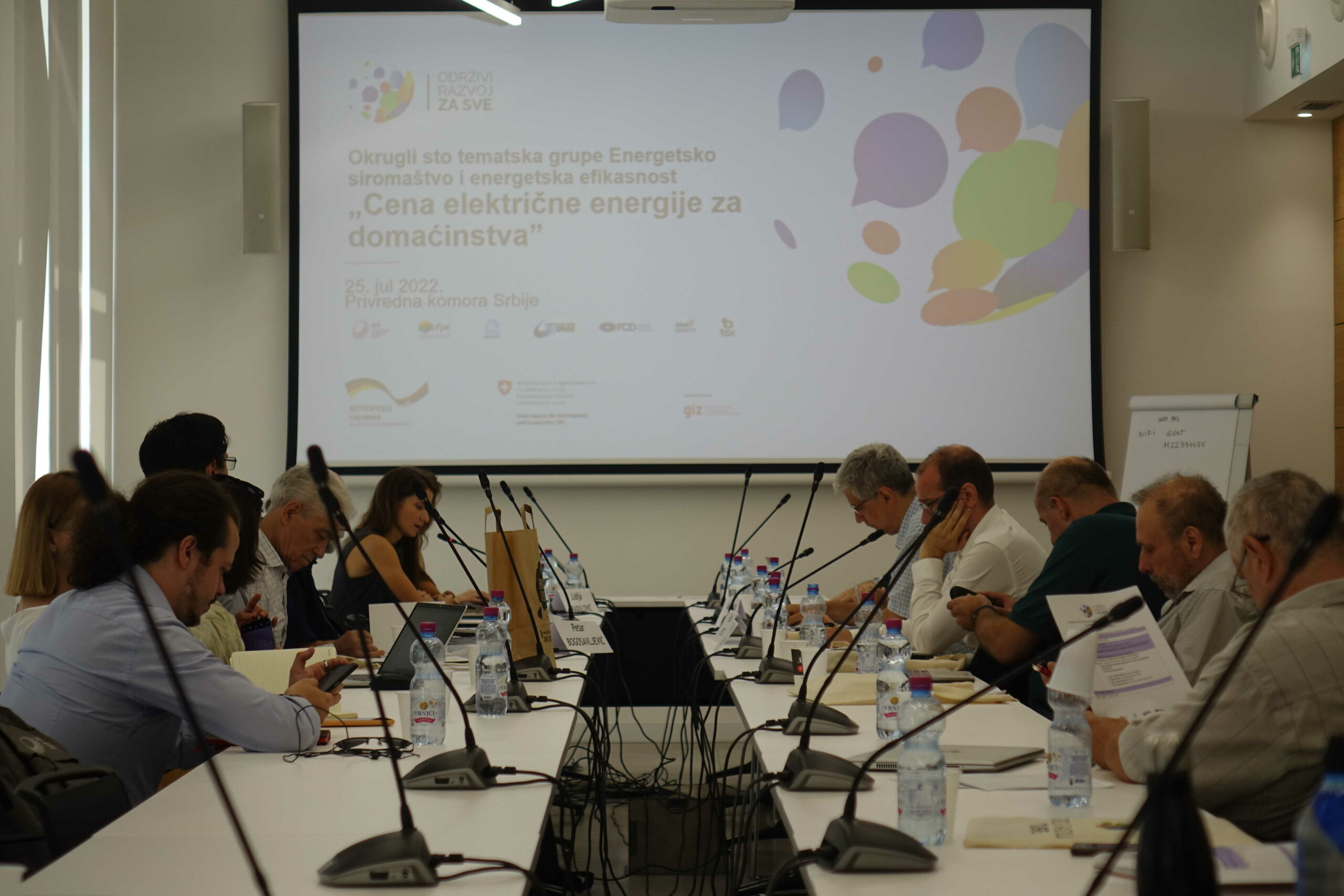On July 25, 2022, a round table of the thematic group Energy Poverty and Energy Efficiency was held within the framework of the Platform “Sustainable Development for All”. The price of household electricity as the main lever of energy security or a measure of energy poverty and changing the tariff system were the main topics of discussion.

Since the issue of increasing the price of electricity is an issue that increasingly occupies the public, in the introductory part Aleksandar Kovačević, from the Oxford Institute for Energy Studies, pointed out some open questions concerning the need to collect electricity for households and its impact on different dimensions of energy of energy efficiency. He said that decision-making in the field of energy is always a political issue, and that the price is a kind of compromise between a whole series of different circumstances. It was pointed out that 56% of households use firewood or coal as the main type of supply, while 20% use district heating. Also, high consumption and high losses are concentrated in the period of very cold days when consumers switch from firewood to electric heating. Calculations indicate that there are periods when losses make up more than 40% of delivered energy.

In the panel discussion that followed, Bojan Stanić from the Chamber of Commerce of Serbia, Srđan Bogosavljević from IPSOS, Petar Bogosavljević from the Consumer Protection Movement and Nenad Bumbić from the Association for Consumer Protection participated. During the discussion, the participants reached several conclusions. The first is that when it comes to energy poverty, Serbia is rather inefficient than poor. Then, that an increase in the price of electricity can lead to a decrease in the consumption of other goods and services. The third important conclusion is that electricity has an economic and social role, but also that there are no stimulating measures for savings. Furthermore, a comprehensive transformation of the Electric Power Industry of Serbia is needed, as well as valid control and supervision of subsidies. The fifth conclusion is that although it is considered that the existing tariff system is the best in Europe, it does not fully fulfill its economic and social role, so the possibilities of its modification should be considered.
Therefore, it is necessary to conduct comprehensive research that will include a number of factors since it is a complex issue that permeates different dimensions so that alternative solutions that may not be visible now are recognized.













